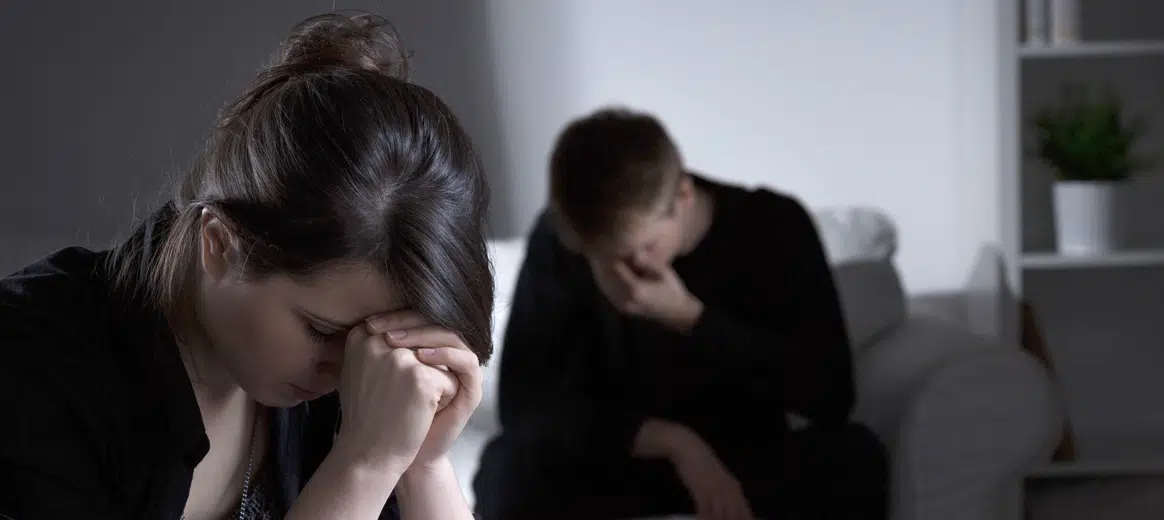For many families, social distancing and the stay-at-home orders, while stressful, provide the silver lining of added time together and the opportunity to reconnect. Sadly, this increased time at home is not a positive thing for all families. In some cases, home is not peaceful, and the people in it are not safe.
Domestic violence
According to the National Domestic Violence Hotline, every year 12 million Americans are victims of physical or sexual violence at the hands of their spouse or partner. More than 1 in 3 women and 1 in 4 men will experience domestic violence at some point during their lifetime. Some hostile encounters, such as emotional and verbal abuse, never escalate to physical aggression but can be equally destructive. Violence in the home does not stop with adults, either — nearly 700,000 children are abused in the United States each year. And in 80 percent of these cases, the abuser was a parent.
Why the risk now?
Since stay-at-home orders were issued, police have reported an increase in reports of domestic abuse across the country. The combination of increased stress, uncertainty about the future, financial hardship and constantly being in the home together has led to a higher rate of domestic violence. Domestic violence, though, is not about stress or even anger. At its core, domestic violence is about power and control. The abuser seeks to control the victim, often by isolating them from friends and family, or restricting their ability to work or be out of the house. In many ways, the pandemic is an abuser’s playground. There is an automatic justification to keep a victim isolated, afraid and at home.
Paradoxically, reports of child abuse have decreased since the start of the pandemic. However, this is likely due to the fact that the primary interaction that children regularly have with mandated reporters are their teachers at school. With children home, teachers do not have the same access as before, and are unable to note and report new concerns about the child’s safety.
What does domestic violence look like?
There are some specific ways domestic violence can manifest during this time. Couples in an unhealthy relationship with no healthy outlets and no place to get away from each other can find themselves mired in increasing arguments that may progress to aggression. During the COVID-19 pandemic, abuse and threats can take on a specific flavor: threatening to cancel medical insurance coverage, deliberately giving misinformation about the pandemic as a way to control the victim, accusing the victim of being “infected” and forcibly isolating them from the rest of the family, or even not allowing the victim access to hand sanitizers and other cleaning products. Most challenging is that many domestic violence shelters may not be able to remain open at present due to restrictions on the maximum number of people in one location, so victims have fewer places to go to find safety.
What to do?
In any domestic violence situation, safety is the most important goal. In situations where there is a concern about the safety of the victim or any children in the home, call 911. It is also possible to leave unsafe situations, even during Virginia’s stay-at-home order. Executive Order 55 says that persons may leave their home due to a reasonable fear for health and safety. Many shelters are putting victims in hotels if the shelters are full. Additionally, persons concerned about domestic violence can call the National Domestic Violence Hotline any hour of the day at 1-800-799-7233. If they are unable to speak safely due to the abuser being present in the home, they can also engage in an online chat at thehotline.org or text LOVEIS to 22522. To reach the Virginia Family Violence and Sexual Assault Hotline, please call 1-800-838-8238.
The COVID-19 pandemic has brought fear for health and safety. Every person must take steps to make sure his or her safety is secured. For situations of domestic violence, the steps to safety involve reaching out for the help necessary to end the cycle of abuse.
Horne is director of clinical services for diocesan Catholic Charities.
Find out more
To make a teletherapy appointment with a Catholic Charities counselor, call 703/425-0109 or 540/371-1124



Learn from the risen Lord